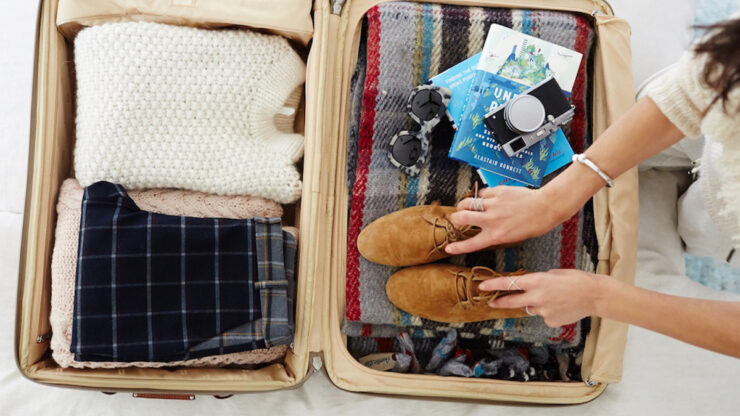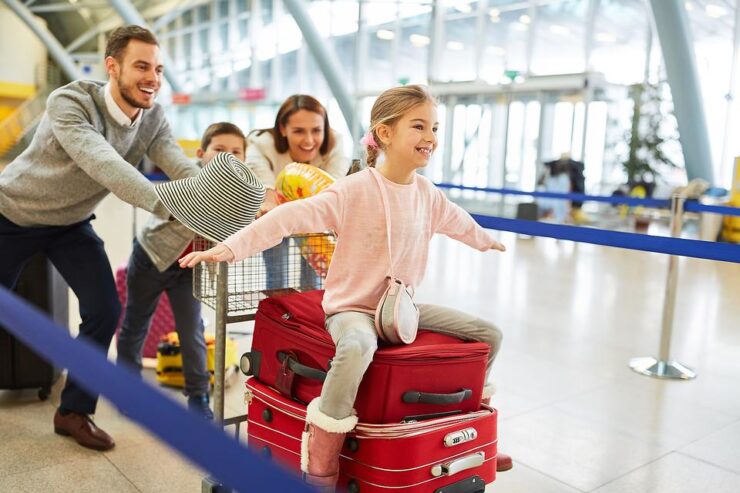Family holidays and trips are meant to be a joyful time together, full of new sights and happy memories. However, taking a journey with children poses unique challenges. As a parent or foster carer, advanced planning and care can transform a potentially stressful trip into a smooth adventure for all. Read on for 15 key tips to make your next travel experience a delight rather than dreadful.
1. Contact Your Fostering Agency

If you’re travelling as a foster family, be sure to notify your fostering agency, such as Fostering People, well in advance regarding your holiday plans. Provide details on travel dates, destinations, accommodation arrangements and emergency contacts at your destination. Open communication ensures everyone is well-prepared.
2. Research Your Destination
Do your homework about where you’ll be visiting. Understand the laws, cultural customs, safety considerations, and age-appropriate activities. Find family-friendly restaurants and plan sightseeing that will interest children. Knowing what to expect allows you to pack properly and avoid issues. Share destination facts with children to spark excitement!
3. Involve Them in Planning
Children who help pick activities, meals and lodging stay engaged during the actual trip. Provide age-appropriate choices: a toddler can pick between two snacks while a teen researches hiking trails. Discuss schedules and must-see attractions. Children with input feel ownership, leading to better cooperation.
4. Pack Smartly

Overpacking leads to luggage headaches. Streamline by having each family member reuse outfits and choose multi-purpose pieces. Only bring essential toiletries. Pack medications, documents, snacks and a minimal number of toys. Use luggage organisers and label everything, including the children! Check luggage weight limits before departing.
5. Utilise Technology
Portable DVD players, tablets and smartphones can entertain children for hours. Download games, e-books, films and music. Bring chargers, child-friendly headphones and protective cases. For young children, pack a few new toys or activity books to maintain interest. Using devices to avoid boredom makes travel time fly.
6. Prepare Essentials
Stock your bag with child-friendly snacks, water bottles, wipes, favourite blankets or toys, medicines and changes of clothes. Having supplies and comfort items on hand reduces airport store purchases. Pack children their own carry-ons with personal snacks and toys so items stay accessible in flight.
7. Book Family-Sized Accommodation

Seeking out larger hotel rooms or suites allows everyone space to spread out. Self-catering apartments with multiple bedrooms, kitchens and lounges provide home comforts. Campsites and holiday parks have family cabins. Multi-room Airbnbs offer flexibility. Booking big ensures less clutter and togetherness fatigue.
8. Adjust the Schedule
Building in ample chill time reduces whining and tantrums. Avoid jampacked sightseeing schedules in favour of more relaxed plans. Have pyjama days or enjoy hotel pool time. Go with the flow when delays or meltdowns happen – flexibility alleviates stress. Young children, in particular, need more downtime. Travel should be fun, not exhausting!
9. Set Realistic Expectations
Don’t expect young children to walk long distances or visit multiple museums in one day without getting cranky. Be realistic about how much you can actually cover to avoid disappointed or burnt-out kids. Consider your child’s normal stamina and attention span when planning; most young children succeed with just 2-3 activities per day with playtime also built in. You know your children best so create an itinerary well-suited for their needs.
10. Surprise Them

Throw in some unexpected fun like stopping for ice cream, swimming at the hotel, or pulling over at a cool playground. These surprise delights make the trip more memorable. When children think they know everything on the agenda, keeping a couple of fun treats secret adds excitement on travel days. Go off-plan and stop to gaze at something unusual that captures your child’s attention as well – those detours lead to magical moments together.
11. Pack a First Aid Kit
Bandages, antiseptic cream, medicine syringes, and more should be close at hand. Bonus points if you stash some stickers just for when tears happen! Ensure you have any regular prescription medications, doses of pain/fever relievers suitable for ages travelling, and antihistamines in case of allergic reactions – being prepared allows rapid response! Those cute plasters and fun stickers also provide distractions when children get injured or overwhelmed.
12. Prepare Children with Social Stories
Share picture books, online resources, or make custom social stories describing what the children will experience. This eases anxiety about new places and situations. Walk even older children through illustrated guides of hotels or airports so they know what to expect – pictures aid understanding greatly! If you will be visiting massive theme parks or tourist sites, show photos of the most intense areas like rollercoasters so kids feel prepared versus overwhelmed onsite.
13. Engage Other Families

Strike up conversations with other families you encounter in hotels, tours, transportation lines and attractions. Kids enjoy meeting children their own age during travels. Comparing notes with other parents and carers leads to great destination advice! Bonding with other families helps everyone pass the time and makes travel more social.
14. Split Up Sometimes
As counterintuitive as it sounds, splitting the group occasionally can make together time more harmonious. Take shifts between parents so one cares for the baby in the room while the other parent does an activity with older siblings. Older kids might enjoy a special outing alone with Mum or Dad. Time apart prevents family members from getting irritated with too much constant contact. Group dynamics improve with breathing room!
15. Capture the Memories
Beyond the usual family photos, have the children journal or make artwork to capture the trip’s highlights. These mementos become treasured later, reminding children how much fun they had. Hand a digital camera to older kids urging them to photograph their unique vantage point on the journey – sometimes what fascinates them differs from Mum and Dad! Ask children questions about their favourite parts and enjoy re-living through their humorous or interesting tales later when you collect special souvenirs.
Advance preparation, realistic scheduling and an upbeat attitude set the stage for smooth family getaways. Stay flexible when the unexpected happens. With care taken to provide for children’s unique needs, parents and foster carers can sit back and enjoy the journey. Travelling as a family creates magical moments sprinkled throughout the passing scenery – relish each one.

